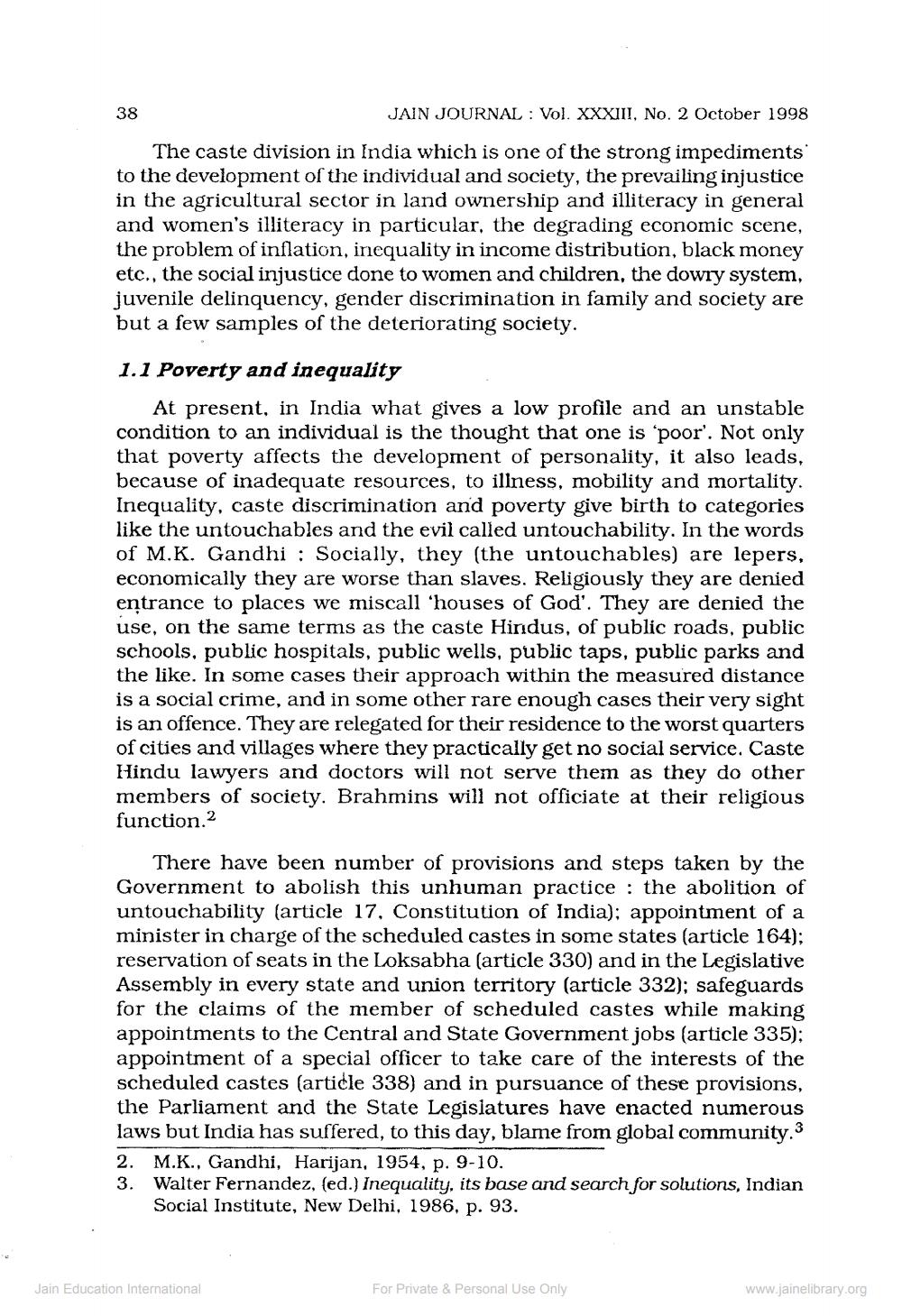Book Title: Jain Journal 1998 10 Author(s): Jain Bhawan Publication Publisher: Jain Bhawan Publication View full book textPage 7
________________ 38 JAIN JOURNAL: Vol. XXXIII, No. 2 October 1998 The caste division in India which is one of the strong impediments to the development of the individual and society, the prevailing injustice in the agricultural sector in land ownership and illiteracy in general and women's illiteracy in particular, the degrading economic scene, the problem of inflation, inequality in income distribution, black money etc., the social injustice done to women and children, the dowry system, juvenile delinquency, gender discrimination in family and society are but a few samples of the deteriorating society. 1.1 Poverty and inequality At present, in India what gives a low profile and an unstable condition to an individual is the thought that one is 'poor'. Not only that poverty affects the development of personality, it also leads, because of inadequate resources, to illness, mobility and mortality. Inequality, caste discrimination and poverty give birth to categories like the untouchables and the evil called untouchability. In the words of M.K. Gandhi Socially, they (the untouchables) are lepers, economically they are worse than slaves. Religiously they are denied entrance to places we miscall 'houses of God'. They are denied the use, on the same terms as the caste Hindus, of public roads, public schools, public hospitals, public wells, public taps, public parks and the like. In some cases their approach within the measured distance is a social crime, and in some other rare enough cases their very sight is an offence. They are relegated for their residence to the worst quarters of cities and villages where they practically get no social service. Caste Hindu lawyers and doctors will not serve them as they do other members of society. Brahmins will not officiate at their religious function.2 There have been number of provisions and steps taken by the Government to abolish this unhuman practice the abolition of untouchability (article 17. Constitution of India); appointment of a minister in charge of the scheduled castes in some states (article 164); reservation of seats in the Loksabha (article 330) and in the Legislative Assembly in every state and union territory (article 332); safeguards for the claims of the member of scheduled castes while making appointments to the Central and State Government jobs (article 335); appointment of a special officer to take care of the interests of the scheduled castes (article 338) and in pursuance of these provisions, the Parliament and the State Legislatures have enacted numerous laws but India has suffered, to this day, blame from global community.3 2. M.K., Gandhi, Harijan, 1954, p. 9-10. 3. Walter Fernandez, (ed.) Inequality, its base and search for solutions, Indian Social Institute, New Delhi, 1986, p. 93. Jain Education International For Private & Personal Use Only www.jainelibrary.orgPage Navigation
1 ... 5 6 7 8 9 10 11 12 13 14 15 16 17 18 19 20 21 22 23 24 25 26 27 28 29 30 31 32 33 34 35 36 37 38 39 40 41 42 43 44 45 46 47 48 49 50 51 52 53 54 55 56 57 58 59 60 61 62 63 64 65 66
